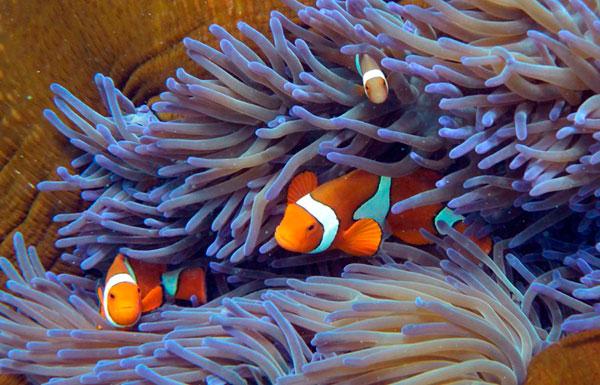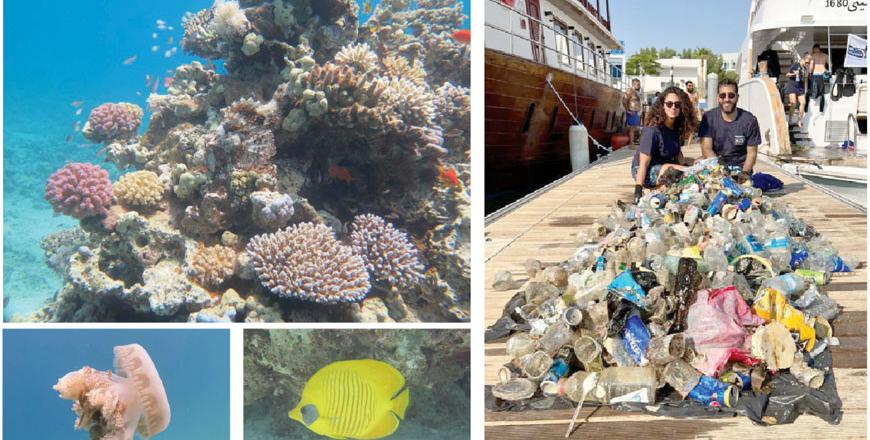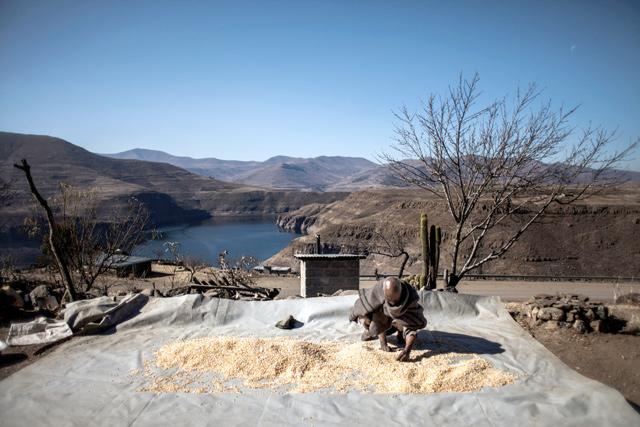You are here
Survival of coral reefs depends on pollution cuts
By AFP - Nov 02,2017 - Last updated at Nov 02,2017

AFP photo
MIAMI — Some corals may naturally adapt to climate change, but their ability to survive could be outpaced by global warming unless cuts are made to greenhouse gas emissions, researchers said Wednesday.
Coral reefs carry an annual global economic value of $375 billion per year because they provide shelter for fish and marine life, protect shorelines and draw tourism to coastal areas.
But climate change, pollution, storms, bleaching and disease are endangering reefs worldwide, and up to 90 per cent are in danger of dying off by mid-century, scientists have warned.
The study in the journal Science Advances looked at a kind of cool-water coral species known as tabletop corals (Acropora hyacinthus) in the South Pacific’s Cook Islands.
Some of these corals have genetic variants that make them naturally able to tolerate heat and rising temperatures.
But researchers discovered that their capacity is limited.
“These corals aren’t going to adapt at an unlimited rate,” said lead author Rachael Bay, a postdoctoral scholar at the University of California, Davis.
“Keeping these reefs around requires curbing emissions.”
The study relied on computer models that simulated corals’ ability to survive under four different greenhouse gas concentration levels — or Representative Concentration Pathways (RCPs) — put out by the UN Intergovernmental Panel for Climate Change.
If little to nothing is done to curb carbon emissions in the next century and temperatures rise 3.7ºC or more, tabletop corals will die off and risk going extinct, the study found.
“Under more severe scenarios, RCP6.0 and RCP8.5, adaptation was not rapid enough to prevent extinction,” it said.
Under the other two more mild scenarios, which foresee that warming either does not exceed 2ºC by 2100, or that emissions increase for a few decades but then decline by 2040, researchers found the coral would likely adapt and survive.
“Many existing coral populations have a bank of adaptations that has been evolving for a long time,” said co-author Steve Palumbi from Stanford University.
“Those existing adaptations are an asset for them to survive longer and for us humans to benefit longer.”
More research is needed to determine how other coral species would react to various warming scenarios.
Related Articles
PARIS — Up to 95 per cent of Earth's ocean surface will have changed by the end of the century unless humanity reins in its carbon emissions
Aqaba reefs face substantial dangers of man-made variety, mainly overfishing, litteringAround 44% of coral species recorded in Red Sea only
PARIS — Climate change will fundamentally reshape life on Earth in the coming decades, even if humans can tame planet-warming greenhouse gas














